By SHIRAZ A. NASSER

Prelude
The Shia Imami Ismailis are so fortunate and privileged to have benefited from the guidance of their 49th Hereditary Imam, Mawlana Shah Karim al-Hussaini Hazar Imam, His Highness the Aga Khan, at every turn in their lives. Their bond with him is resolute and unshakable.
The Ismaili community is a transnational community. Approximately 12 million Ismaili Muslims reside in over 25 countries around the world. Despite being so geographically diverse, as well as representing so many different ethnicities, cultures, traditions and languages, the Shia Imami Ismailis, remain staunchly united, through their faith.
This faith is based on the centrality of the Imam, who is the direct descendant of the Prophet Muhammad (peace be upon him and his family) through his cousin and son-in-law, Ali, the first Imam, and his wife Fatima, the Prophet’s daughter.
Shortly after receiving the mantle of Imamat on July 11, 1957, while only 20 years of age and studying at Harvard, Queen Elizabeth ll, bestowed him the title of His Highness. Aga Khan title is an honorific title bestowed on 46th Imam Hasan Ali Shah by Persian King Fateh Ali Shah Qajar.
Since taking over the role from his grandfather in July 1957, the Imam has guided the community, through decades of changing and ever-evolving worldly milieu, involving many major political and social movements including decolonization of sub-Saharan Africa.
The Imam sees himself as responsible for the security and quality of life of his followers.
The Imam has been described as a visionary, intelligent, humble, hard-working, genuinely thoughtful, polite, pragmatic and a wise humanitarian. The world also sees him as a brilliant statesman, a modest and respected leader and a world figure.
He refuses to call himself a philanthropist as he considers it his obligation and responsibility, through his institutional Imamat mandate, to help his community, Islam and humanity at large.
The soft-spoken Imam has always given of his life for the betterment of others. His tireless and dedicated work for his community is unfathomable.
Words will not do justice to describe their 81 year old Imam’s grandeur, eminence or of his stature. An attempt is made here to highlight the work of the Imam as tens of thousands of Ismailis around the world begin arriving in Lisbon, Portugal, to celebrate the completion of his Diamond Jubilee year on July 11, 2018.
Facet #1 – The Imam’s Engagement with the World
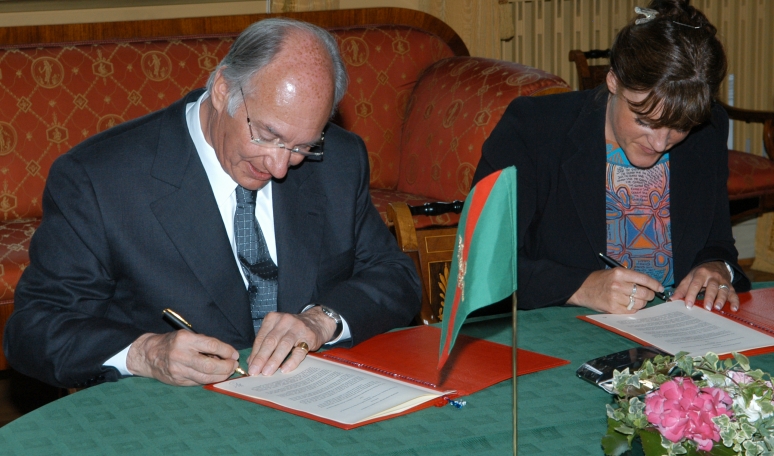
Over this long stretch of time, the Imam has established and re-established relations with governments, despite changing leadership, often overcoming frustrations when progress is marred.
Several Memoranda of Understanding, Accords and Agreements of Cooperation have been signed between the Aga Khan Development Network (AKDN), numerous governments, various renowned educational institutions and other International partners for developmental activities in Africa, the Middle East, the Central and South Asia.
These entities deserve recognition for partnering with the Imam to attain maximum synergy for the important developmental work of enormous humanitarian consequences.
The Office of the Imamat upholds its traditional role of political neutrality.
The AKDN enjoys full legal and diplomatic status where it operates and the Imam is always accorded full privilege and honor, reserved only for Head of States, with all appropriate protocols.
The Imam’s farfetched vision is of an inconceivable, long-term horizon. His engagement with numerous governments is through silent diplomacy.
The fruition of his enduring work is owed to his incredible patience, perseverance and being in the long haul. The vastness of his great work is all coming to light today.
There has been a significant improvement in health and tangible reduction in illiteracy and impoverishment in many remote regions of the world, where the Imam’s work is being carried out.
The Imam talked about the impact of globalization and the changing knowledge society.
The Imam has talked extensively about competency in governance, enabling environment, sustainable development, corporate social responsibility, role of engaged civil society, and best practices.
He has persistently talked about life-long learning, excellence and meritocracy.
He has also talked about cosmopolitan ethics of the fragmented world and concept of Global citizenship. He talks about the role of intellect and collective human responsibility.
Facet #2 – The Imam’s Role in helping the Displaced in his Community
The Imam has been at the forefront for his community during many serious crises like in Burma, Bangladesh, Congo, Uganda, Zanzibar, Afghanistan, Syria and at many other places on different occasions. It deeply hurts the Imam to see any segment of his community to go through any such catastrophic predicaments.
During the diaspora, thousands were displaced and otherwise, had nowhere to turn to. The Imam has provided crucial humanitarian assistance in their resettlement; and provided badly needed, prospect of real hope to those affected.
He had been the sole lifeline and transformed the living of habitants of the vast Central Asian region, left on a cold limb, after the abrupt Soviet Union Collapse. This has required a colossal effort.
Facet #3 – The Imam’s Recognition on the World Stage and valuable contributions of his family
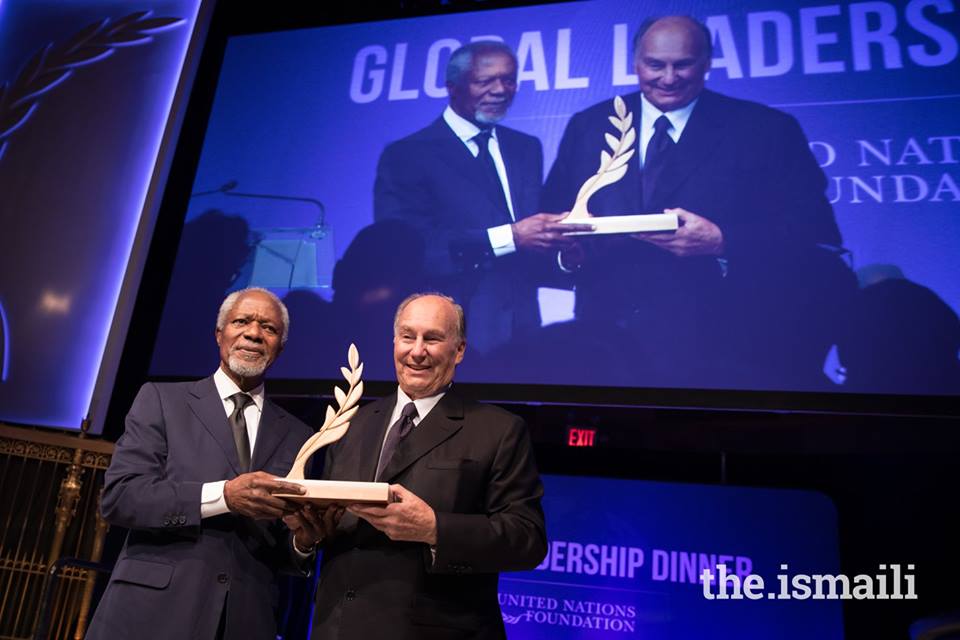
The Imam has delivered many profound speeches at prominent world-wide events. He is well respected and the world listens to him.
Across the globe, he has been revered and decorated with countless awards, highest Civic honours, numerous honorary doctorates, and many esteemed citations from leaders of many countries, organizations and renowned academic institutions.
Befitting to say the least, one of his latest decorations, is Uganda’s highest civilian honour the Most Excellent Order of the Pearl of Africa medal. The name of the medal is so apt and fitting for the Imam. The Imam also got the Asia Society’s Game Changer Award for Lifetime Achievement in New York in 2017, for using philanthropy to lift lives of millions of Asia’s most vulnerable.
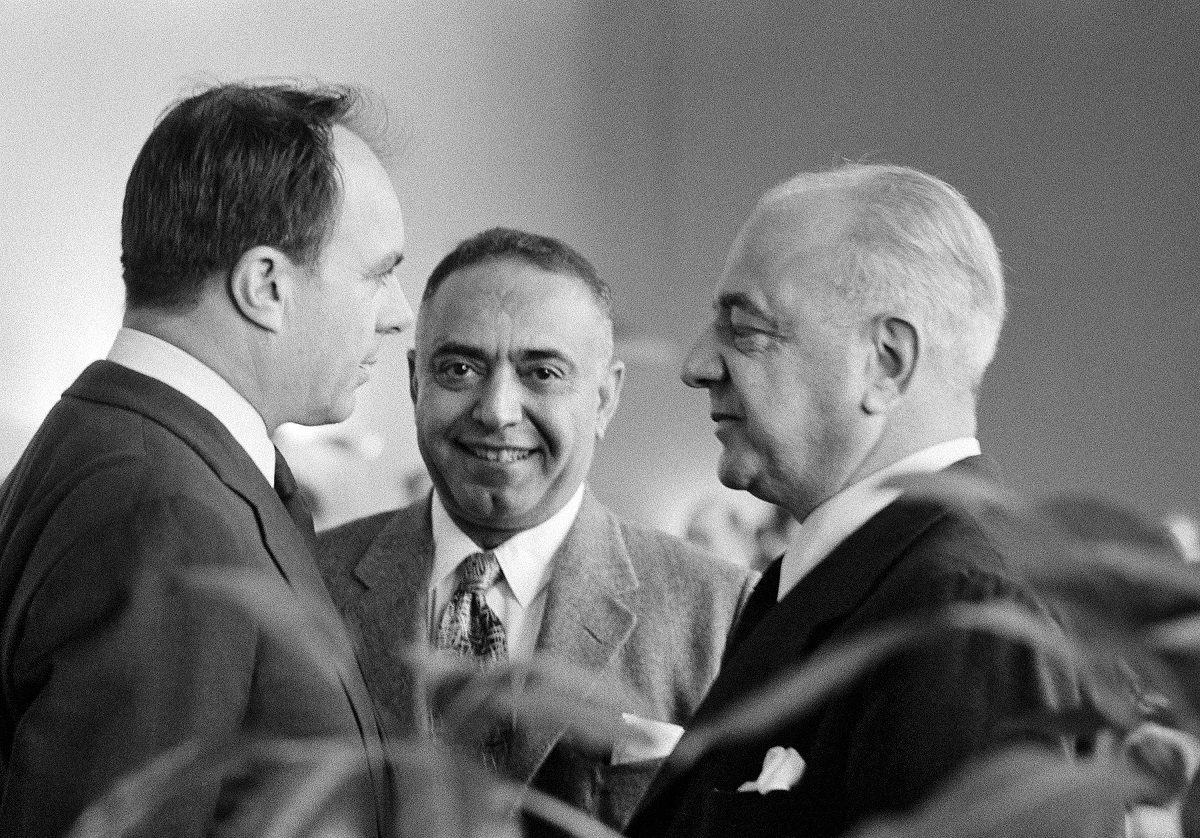
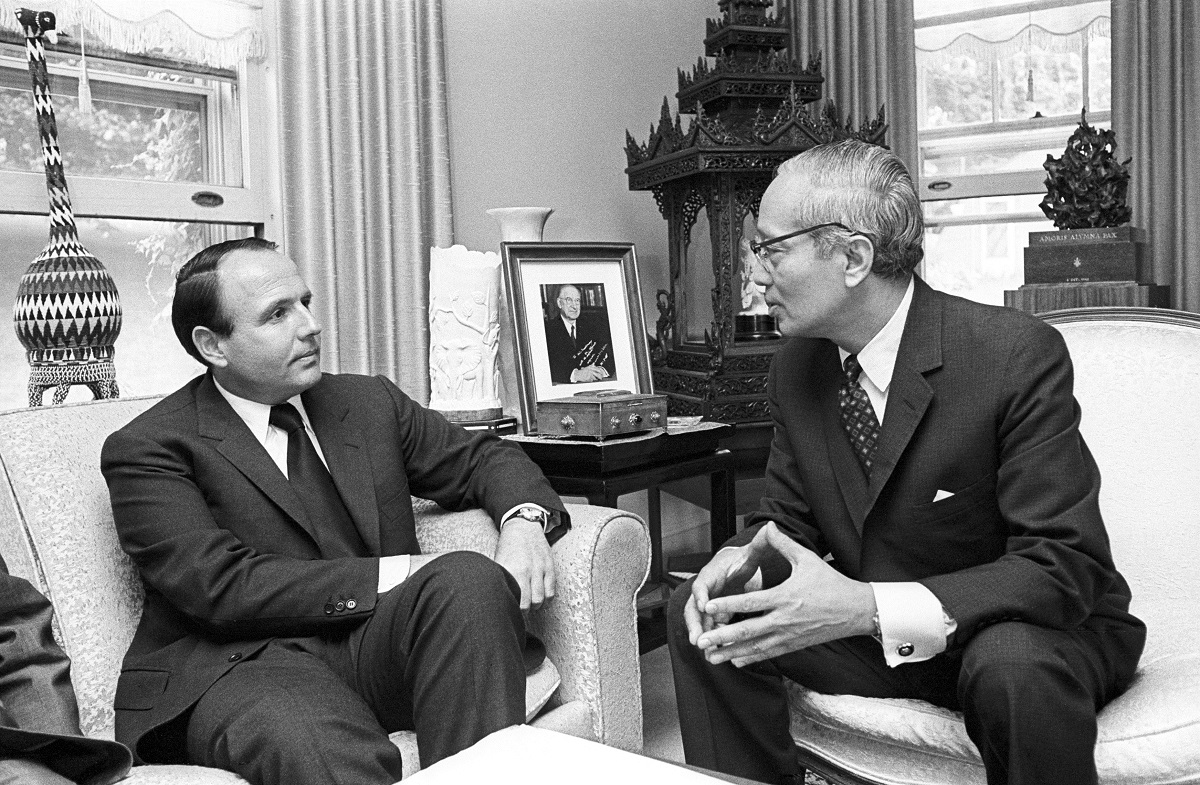
Another outstanding recent honor to the Imam is the United Nations’ Champion of Global Change Award. Receiving an award from the United Nations is very significant for the Imam, as he has a family connection to this important international organization. The Imam’s grandfather, Sultan Mahomed Shah Aga Khan, was at one time the President of the League of Nations, the forerunner to the United Nations. Prince Aly Khan Aga Khan, the Imam’s late father worked as Ambassador for Pakistan. Prince Sadruddin Aga Khan, the Imam’s late uncle worked as the United Nations High Commissioner for Refugees, and his younger brother Prince Amyn Mohamed Aga Khan also served in implementing the development plan for developing countries early in his career, prior to joining Imam’s demanding work.
The running of the Aga Khan Development Network, with its vast work and reach, is assisted by the Imam’s family: his brother Prince Amyn, and his children Princess Zahra, Prince Rahim, Prince Hussain and Prince Aly Muhammad. They all take an interest in the Imam’s noble work and are always at his side, steadfastly assisting him.
Facet #4 – The Imam’s Vision for Islam

Islam is a spiritual and thinking faith. Like other faiths, Islam affirms vertical relation to the Creator and a horizontal relation to fellow human beings and the rest of Allah’s creation.
The Imam is a remarkable figure and has championed the cause of Islam. He has made compelling speeches to the Ummah on frontierless brotherhood, ethos and the social conscience of Islam.
The Imam has addressed the media about responsible reporting and has argued fervently about misguided beliefs and misconceptions such as ‘the clash of civilizations,’ which he sees instead as a clash of ignorance.
The Imam wants the distorted Image of Islam to be corrected. The few who cause damage to humanity in the name of Islam do not speak for the faith. As mentioned in the Qur’an, killing a single person is like killing all of humanity.
He has reminded the world of the glorious, past contributions of Islam and its significant place in history. He eloquently reminds the Ummah about the ‘Shahada’, which unites all Muslims and often urges the Ummah to accept various interpretations of its faith and appreciate the richness of its diversity.
Located at the new Aga Khan Centre in London, The Institute for the Study of Muslim Civilizations of the Aga Khan University promotes a more enlightened understanding of the heritage of Muslims.
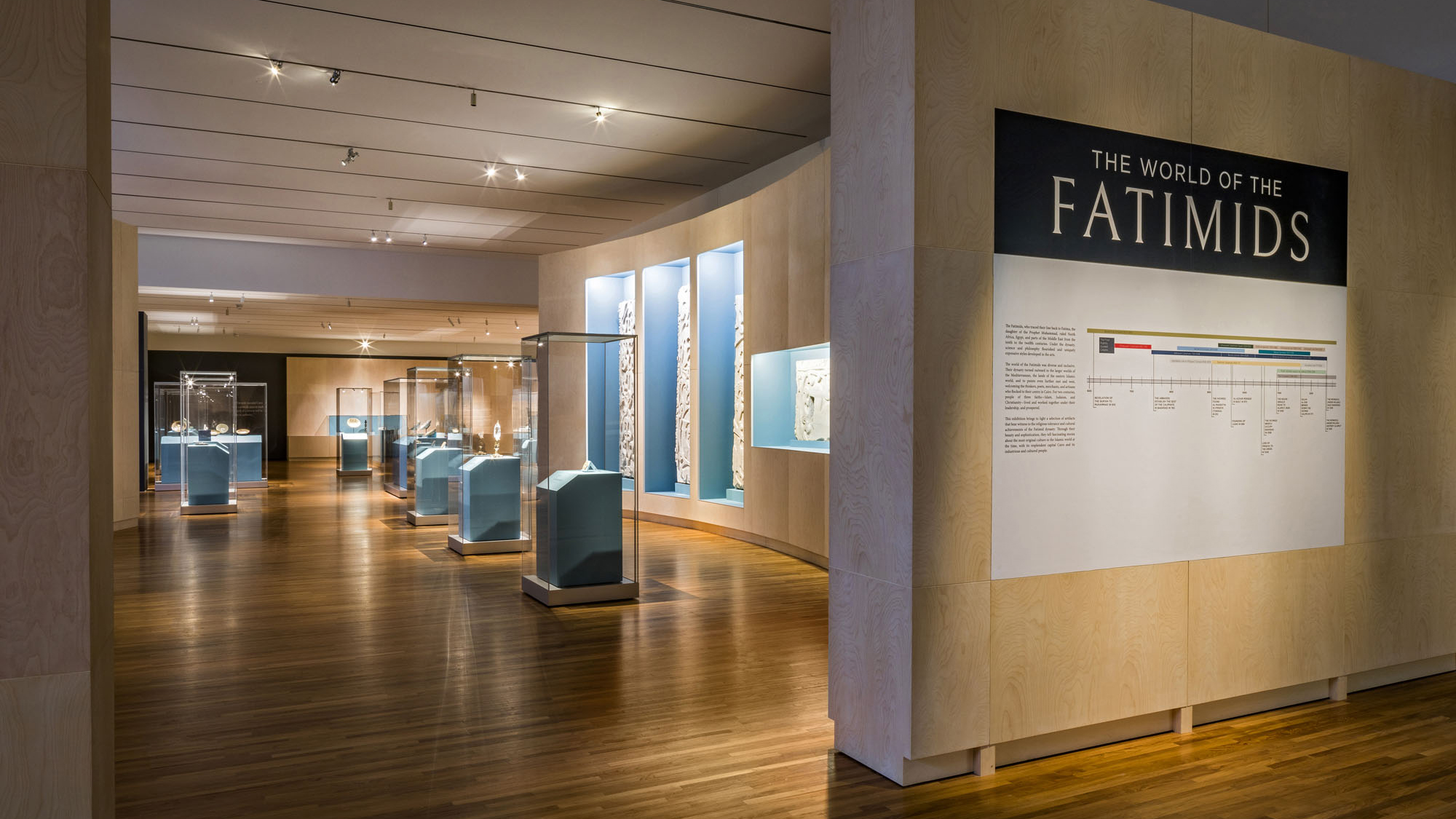
The Aga Khan Museum in Toronto is the largest of its kind in North America and showcases rare Qur’anic manuscripts and Islamic artifacts including those from the Imam’s personal collection. It also exhibits the late Prince Sadruddin Aga Khan’s Bellerive Collection. This landmark monument will help educate the Western world about Islam’s true history, diversity, and contributions.
The Imam wants the know-how of the great faith of Islam introduced in the curriculum in the Western world, along with many universal values that can be found in Islam, such as kindness, honesty, humility, forgiveness, compassion, inclusiveness, and care of the weak and elderly.
Facet #5 – The Constitution of the Shia Imami Ismaili Muslims
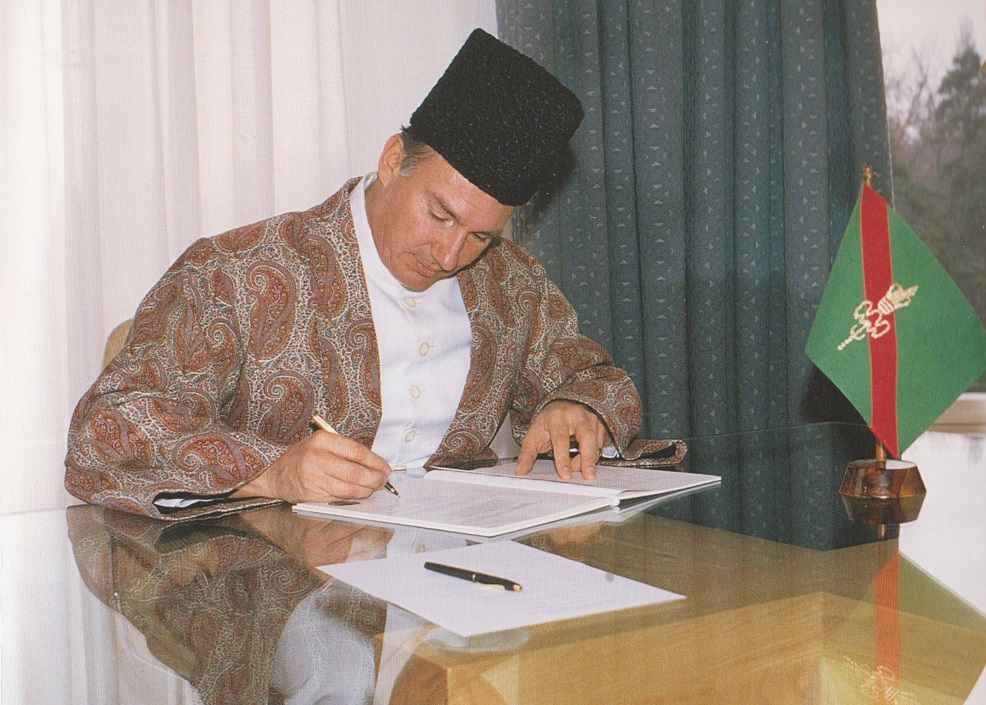
The modern Constitution of the Shia Imami Ismaili Muslims was first ordained on December 13, 1986 and thereafter revised on December 13th 1998 at the Ismaili Centre in Portugal. It is noteworthy, that Portugal is now going to be the new Seat of Imamat.
The Constitution defines the role and authority of the Imamat and of the Jamati institutions along with code of conduct for the community’s followers, along with many articles and provisions.
The Imam has an absolute and unfettered authority over aspects of religious and Jamati (community) matters of the Ismailis. He is their spiritual and temporal guide. The Imam provides his murids (followers) with contemporary tools for success in their spiritual realm.
Islamic ethics of unity, brotherhood, justice, tolerance and goodwill are all enshrined in this Shia Imami Ismaili Muslim Constitution.
The Constitution also describes the role of the Ismaili Leaders International Forum, and the numerous community institutions such as the Aga Khan Councils, the Tariqah and Religious Education Boards, the Grants and Review Boards, the Conciliation and Arbitration Boards.
Facet #6 – The Ismaili Centres and the Institute of Ismaili Studies
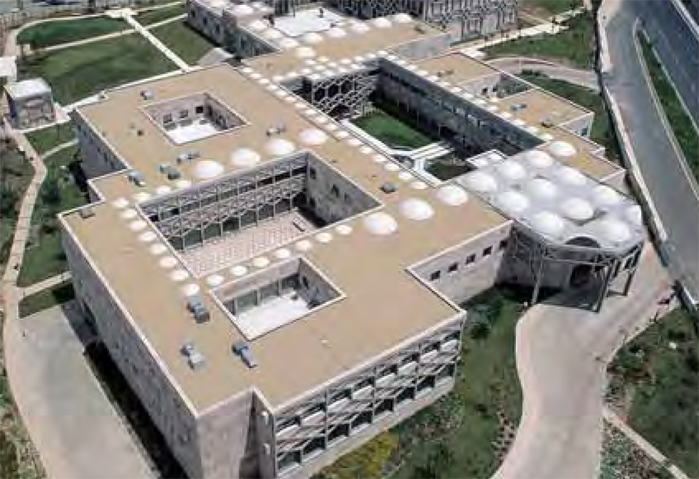
The Ismaili Centres around the world are symbolic markers of the permanent presence and core values of Ismaili communities around the world. Incorporating spaces for social and cultural gatherings, intellectual engagement and reflection, as well as spiritual contemplation, they are bridges of friendship and understanding, and serve to enhance relationships among faith communities, government and civil society.
Architecturally unique Ismaili Centres can be found in London, Burnaby, Lisbon, Dubai, Dushanbe and in Toronto. Each of these iconic monuments is outstanding and set in its own surroundings. One is now being planned for Houston as confirmed by the Imam during his recent Diamond Jubilee visit to the USA.
The other spaces of worship include many beautiful Jamatkhanas all across the world. They are important congregational places for the community and other activities.
The Institute of Ismaili Studies (IIS), which is being relocated to the new Aga Khan Centre in London, promotes the scholarship and learning of Muslim cultures and societies, historical as well as contemporary, and literary expressions of Shi’ism in general, and Ismailism in particular. It produces authentic and scholarly research and publications.
The IIS also produces teaching materials for early childhood education, Bait-ul-Ilm (curriculum for children and youth) and the Secondary Teacher Education Programme Program (STEP). It also provides professional training for teachers.
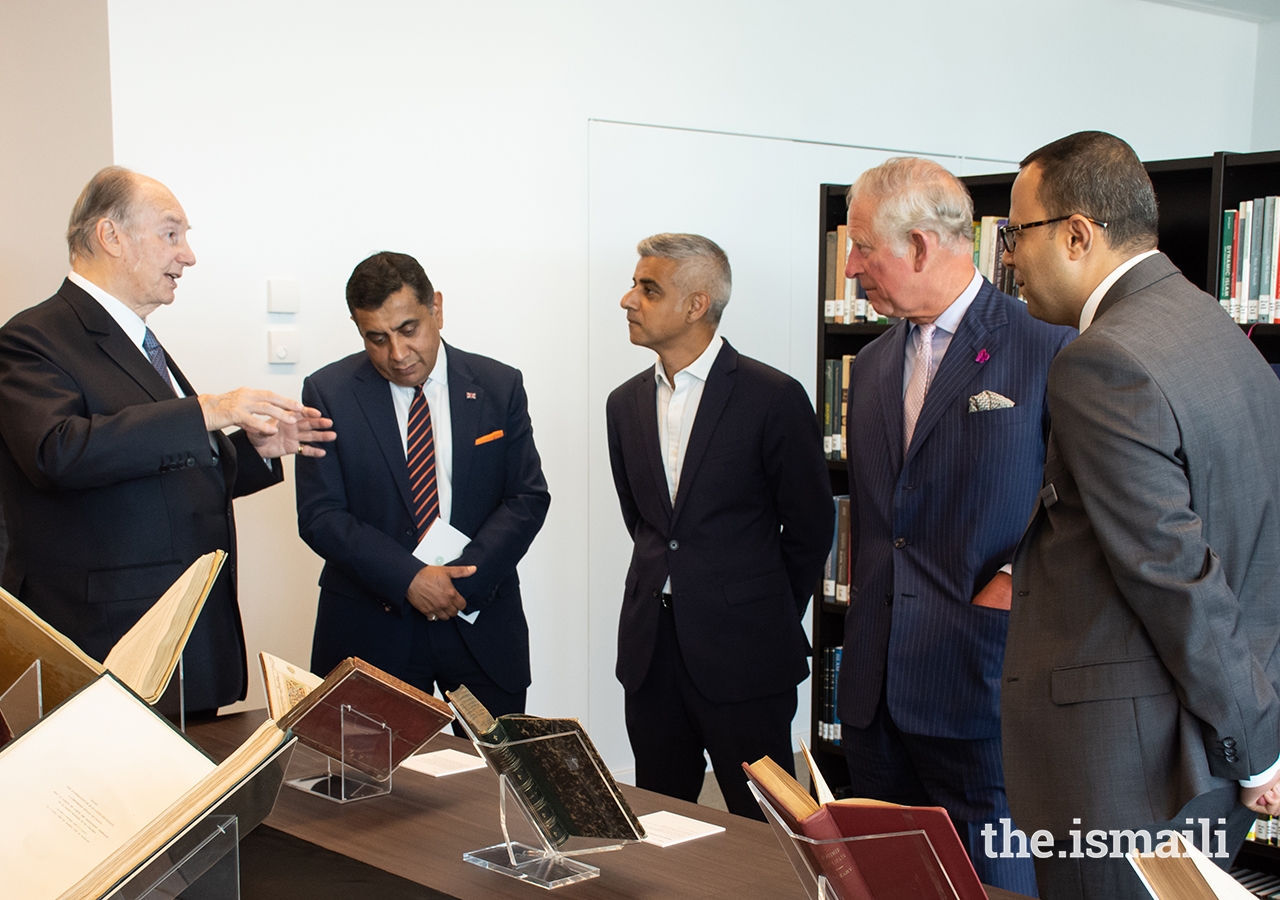
The Ta’lim curriculum for Bait-ul-Ilm is an international programme drawn on modern principles of education. It is presented through high calibre teaching and learning materials. It is published in eight languages: Persian, Portuguese, Tajiki, Urdu, Arabic, English, French and Gujarati.
The institute also offers the Graduate Programme in Islamic studies and Humanities (GPISH).
Facet #7 – The Imam’s Passion for Architecture, Green Spaces and Culture
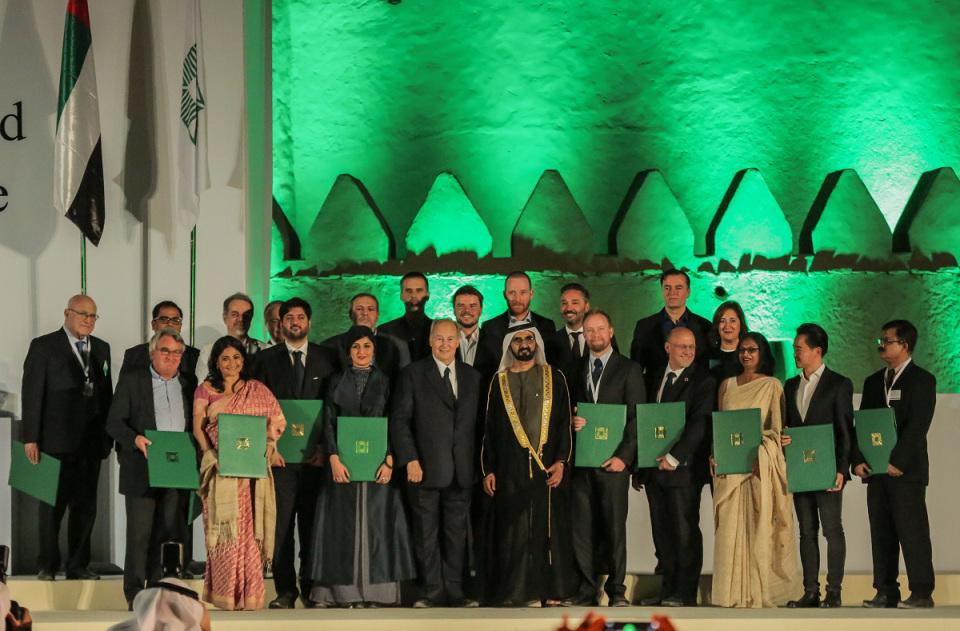
The Imam is very passionate and knowledgeable about architecture and has united the Islamic community through the tri-cycle Aga Khan Award for Architecture.
The prestigious award is the largest of its kind. It identifies and encourages building concepts that successfully address the needs and aspirations of communities in which Muslims have a significant presence.
The Imam has supported the restoration of neglected Islamic monuments through the AKDN’s Historic Cities Program, requiring rare and unique artisan skills.
Since it was founded, the Aga Khan Trust for Culture has restored and rehabilitated over 350 monuments and historic sites. It has also received 13 UNESCO heritage awards for excellence in restoration.
The Imam also established the Aga Khan Program for Islamic Architecture jointly at Harvard and MIT.
The Imam has provided green spaces for many communities including Al-Azhar Park, reclaimed from a dumpsite in the heart of the historic City of Cairo. Interestingly, the City of Cairo was founded by Imam/Caliph Al-Muiz, the 14th Ismaili Imam during the glorious Fatimid period.
During this flourishing empire, Christians, Jews, Muslims and other faiths all lived in harmony. The University of Al-Azhar, one of the oldest universities in the world, was also founded by the Fatimid Caliphate.
The Aga Khan Park in Toronto, the Forodhani in Zanzibar, the National Park in Mali, the Bagh-e Babur Park in Kabul, the Khorog City Park in Tajikistan, the recently opened Aga Khan Garden in Edmonton, are all gifts by the Imam to the citizens.
AKDN has planted 100 million trees in Pakistan alone through programs that address deforestation, transform degraded environments into productive green spaces, and mitigate the effects of climate change.
The Prince Sadruddin Fund for the Environment promotes the management and development of sustainable natural resources through education, area development and related research that addresses existing issues in the developing world. The intention is to assist populations that are most threatened by their natural surroundings, while working to protect fragile ecosystems that are vulnerable to the effects of poorly planned human activity.
Prince Hussain continues his remarkable awareness efforts with his work on photographic exhibitions, creating awareness of pristine nature and environment, as well as building on theme of Prince Sadruddin’s efforts through a new initiative called Focused on Nature.
Facet #8 – The Imam’s Educational and Health endeavours
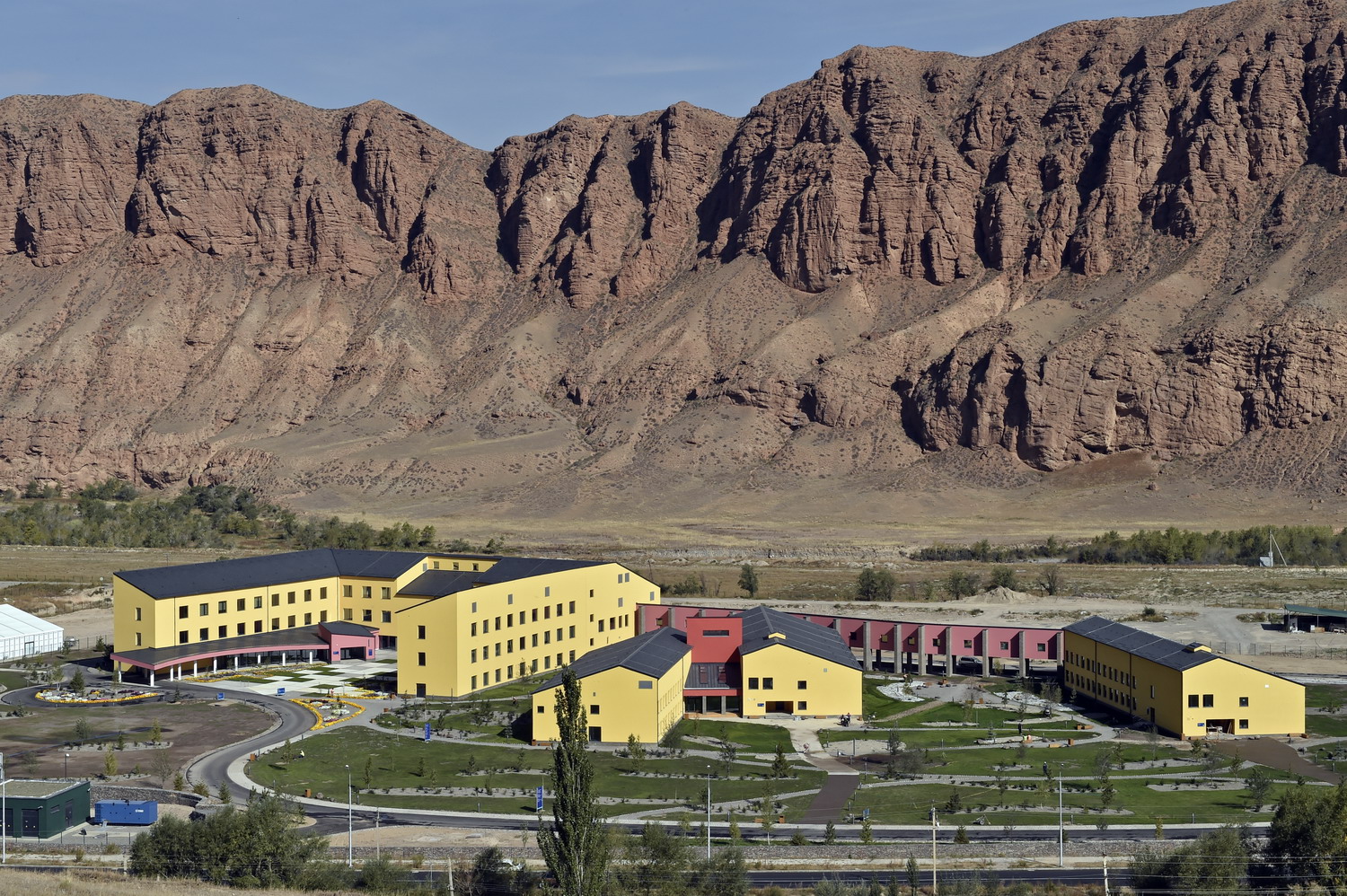
Two important institutions that can make a big impact on societal development are hospitals and universities.
Both involve substantial and prohibitive input of capital expenditure and human resources. Many poor governments do not have the resources to construct these institutions or to keep them running.
The Imam has stepped up to fill this void. The Imam strongly believes that civil society must complement the role of the government.
The Imam has built world-class facilities and made education and healthcare accessible to millions. The facilities are non-denominational, and not-for-profit.
The Aga Khan Health Services has played an important role with countless rural health care centres across the globe to provide primary health care including vaccinations and interventions that lower infant mortality.
The world-class Aga Khan University Hospital in Karachi, Pakistan specializes in tropical illnesses and produces relevant clinical research and innovation.
The Aga Khan Hospital in Nairobi, Kenya with its Heart and Cancer Centre is one of the best hospitals in all of Africa. Both above-mentioned hospitals produce leading and pioneering work.
AKDN is also associated in running the recently inaugurated Bamyan Hospital in Afghanistan. It is difficult for women and children to access medical help in mountainous areas.
There are over 15 Aga Khan Hospitals including those in Dar es Salaam, Hyderabad, Karachi, Karimabad, Kharadar, Kisumu, Mombasa, Mumbai, Nairobi, and a newly announced Hospital in Kampala. To oversee so many hospitals is a huge undertaking.
Pakistan had an acute shortage of nurses, but with the AKU’s School of Nursing, the Imam helped to alleviate that problem. It is an impressive feat in a country where women face many cultural challenges and barriers. This tremendous success now is replicated in East Africa and other parts of the world.
The Aga Khan Education Services has many schools for children all over the regions. It has provided remarkable opportunities for girls to study and reach their potential. Women have been empowered under his leadership. It opened windows of opportunity for individual families and their communities, and made a huge difference in the quality of their lives.
Institute for Educational Development Program at the AKU was established to improve educational standards in primary and secondary schools through field-based training programmes.
The University of Central Asia, with campuses on the on the legendary silk route, is a case where the Imam has brought three Central Asian countries together, in partnership with AKDN, to achieve a common purpose of meeting needs of specific mountain society education for their communities.
The Imam is the Chancellor of the University and the Presidents of Tajikistan, Kyrgyz Republic and Kazakhstan Republics are the Patrons.
Good governance and Media studies have been added in the curriculum design of the Aga Khan University and the University of Central Asia to benefit of emerging nations of Africa and Central regions of Asia.
The Aga Khan Academies are sprouting up in different countries, building up a network of schools of world-class calibre to provide wholesome education and create great future leaders.
Three Academies have already been opened in Mombasa, Hyderabad and Maputo. A total of 18 Academies are in planned to serve 14 countries in all.
These competitive, educational institutes are merit based, non-denominational and non-gender-specific. The funding is need-based, giving everyone an opportunity regardless of their religious beliefs, culture, or background.
Facet #9 – The Imam’s other developmental work
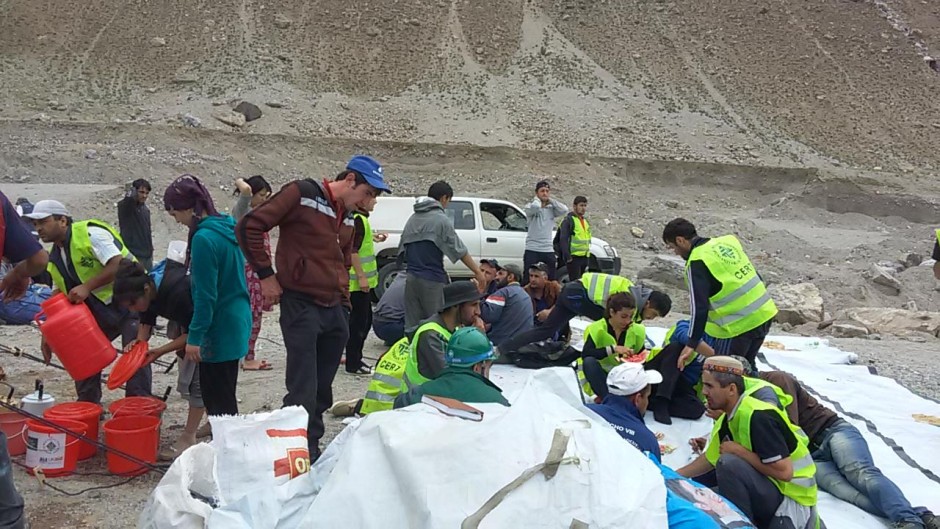
The Imam is also a steward for the community’s economic and social welfare. His objective is to improve the quality of life of not only of the Ismaili community, but also of other communities, within which Ismailis reside.
Both forward-looking and sustainability of institutions is a hallmark of Imam’s thinking, who is indisputably a unique and successful institution builder.
AKDN also draws the best skills from the Ismaili community.
The Imam is so concerned about the generations caught in the vicious cycle of poverty and deprived of means. His aim is to improve livelihood of the vulnerable, the marginalized and the ultra-poor. He wants them to have opportunities, be self-sufficient, and live a life of dignity.
The Imam advocates that there is dignity in individual’s ability to manage his or her destiny.
He asserts that that the biggest weapon for these communities is the replacement of fear by hope.
The Imam has also engaged in areas which are hostile and difficult to operate, with ongoing geo-political strives such as Afghanistan and in mountainous regions with extremely difficult access, such as Badakhshan, in Central Asia and Northern areas of Pakistan.
The Imam has also reached out to populations neglected in rural areas of India, Pakistan and remote areas in Africa by providing infrastructure and opportunities.
The Imam has established affordable Housing colonies and helped in providing water and sanitation facilities. He has also provided irrigation and other help for rural farmers through the outstanding AKDN agencies.
The Aga Khan Agency for Microfinance has fostered hope to families with low or no income in many challenging regions of the under developed world.
Focus Humanitarian Assistance (FOCUS) is an International crisis response and disaster risk management agency which provides emergency relief to communities suffering from natural disasters or man-made crises.
The Imam has also engaged communities through other cultural initiatives such as the Silk Road Music initiative. Recently on Navroz March 21, 2018, he announced the establishment of the Aga Khan Music Awards.
The AKDN literally employs thousands of people and has an enviable budget comparable of a small country in Africa. Millions of people and communities have benefitted. AKDN has made a significant and a meaningful impact in their livelihoods.
With Imam’s compassion and humility, not surprisingly, AKDN today assists the country of Uganda, despite what happened to the Ismaili community and all Asians in Uganda, at the time of the rule of Idi Amin. Such noble values are held by the Imam and his community. It is also noteworthy to mention that the Imam also graced his first Diamond Jubilee visit to Uganda.
Facet #10 – The Imam’s Economic Developmental Work
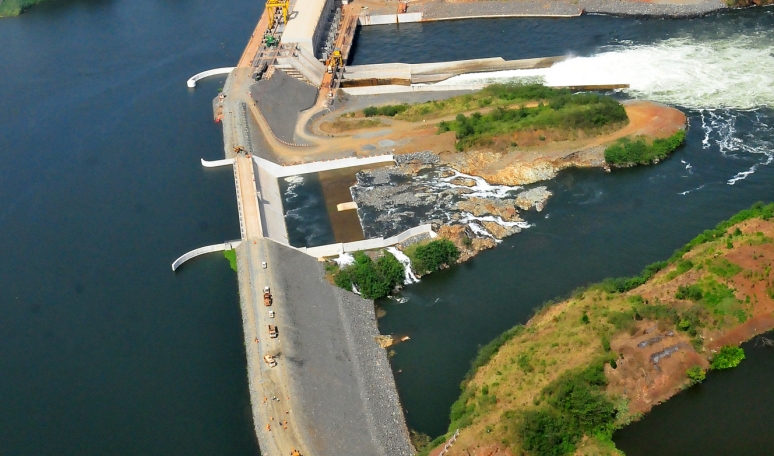
AKDN has also been involved with industrial projects through Industrial Promotion Services (IPS), Serena Hotels, Media companies, Hydro and Telecom companies. This partnership helps train local workers, create employment and boost the local economy. Surpluses are reinvested for further developmental activities of the AKDN.
The splendorous Serena group of properties operated by AKDN’s agency of Tourism Promotion Services also bring in much needed foreign currency to the local economy. There are currently 22 hotels, resorts and safari lodges in places like Kenya, Tanzania (including Zanzibar), Mozambique, Pakistan, Tajikistan and Afghanistan.
A significant mention should be made for the contribution of Roshan, the telecommunication company in Afghanistan, the Bujagali Hydro project in Uganda and of Pamir Energy Company in Khorog, Tajikistan. These are amongst the many flagship infrastructure projects of the AKDN.
The Nation Media Group, founded by the Imam is majority-owned and run by Kenyans and has become the largest independent media company in East and Central Africa. It was set up with origins in Kenya’s Taifa and Nation newspapers, to provide independent voices during the years just preceding the country’s independence.
Facet #11 – The Imam as an advocate for Pluralism
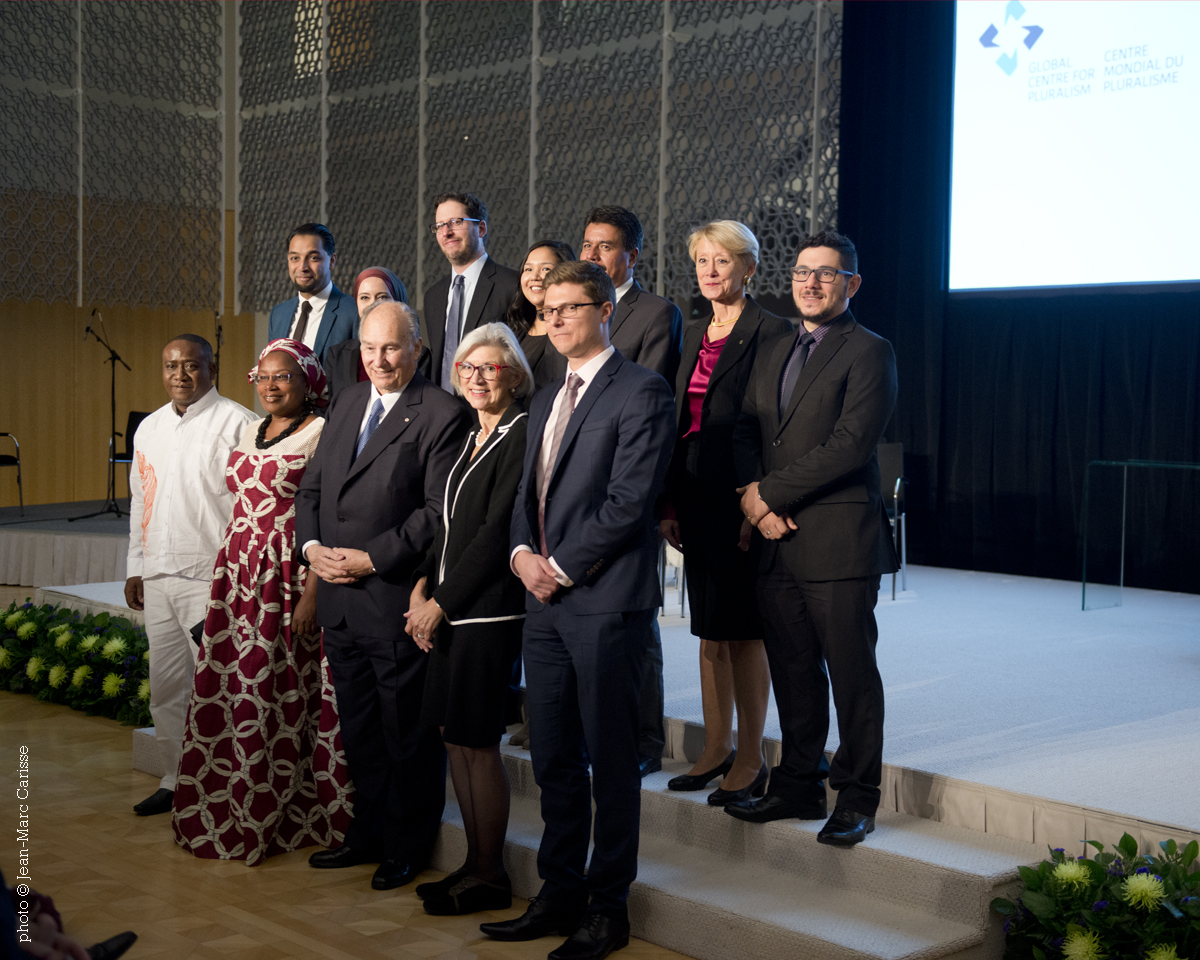
The Global Central for Pluralism in Ottawa has been converted from what was once a War Museum to a place that hopefully will contribute to peace in the years and decades to come. The Centre was established by the Imam with support from the Canadian Government. Through research, education and dialogue, its aim is to advance respect for diversity worldwide.
The Imam is a passionate and ardent advocate of Pluralism and reiterates persuasively that Plurality is not only a strength but also fundamental to our existence and survival; and societies have to relentlessly work at it and address it. Genuine Pluralism and diversity does not weaken society but strengthens it.
The Imam also talks about the shared destiny and ethos of Abrahamic tradition that unites the three great monotheistic faiths of Christianity, Judaism and Islam. The Imam quotes, an Ayat (verse) from the Qur’an that all humans are made from single soul.
The Imam is a uniter and a true bridge-builder. Such qualities are desperately needed in today’s ever fragmenting world.
Facet #12 – The Imam’s Tireless Work

Sixty years of work with no breaks is a long time in anyone’s life. The emotional and physical exertion must be taking a toll on the Imam, even more so, now because of his age. The Imam has clocked countless hours travelling through different time zones for his remarkable endeavours and to complete his essential work.
Many of these prominent state leaders, the Imam has interacted in the past are no longer alive, like John F. Kennedy, Jawaharlal Nehru, Pierre Elliot Trudeau, Ronald Reagan, Margaret Thatcher, Jomo Kenyatta, Nelson Mandela, Julius Nyerere, and Milton Obote. But the Imam still continues his vital work. The Imam’s position is a Hereditary position, and thus the prospect of retirement is not in the cards.
The humanly strain and drain on him, with long working hours, of travelling, attending to Jamati work, sometimes of utmost urgency, reviewing and responding innumerable reports from his institutions, preparing for many consequential meetings and high level discussions with different governments leaders and institutions, does not leave the Imam of much personal or leisure time.
His untiring, round-the-clock work is imperative to him. Nothing makes the Imam happier than to see his community move forward and to make a meaningful impact on humanity.
Facet #13 – The Imam’s followers
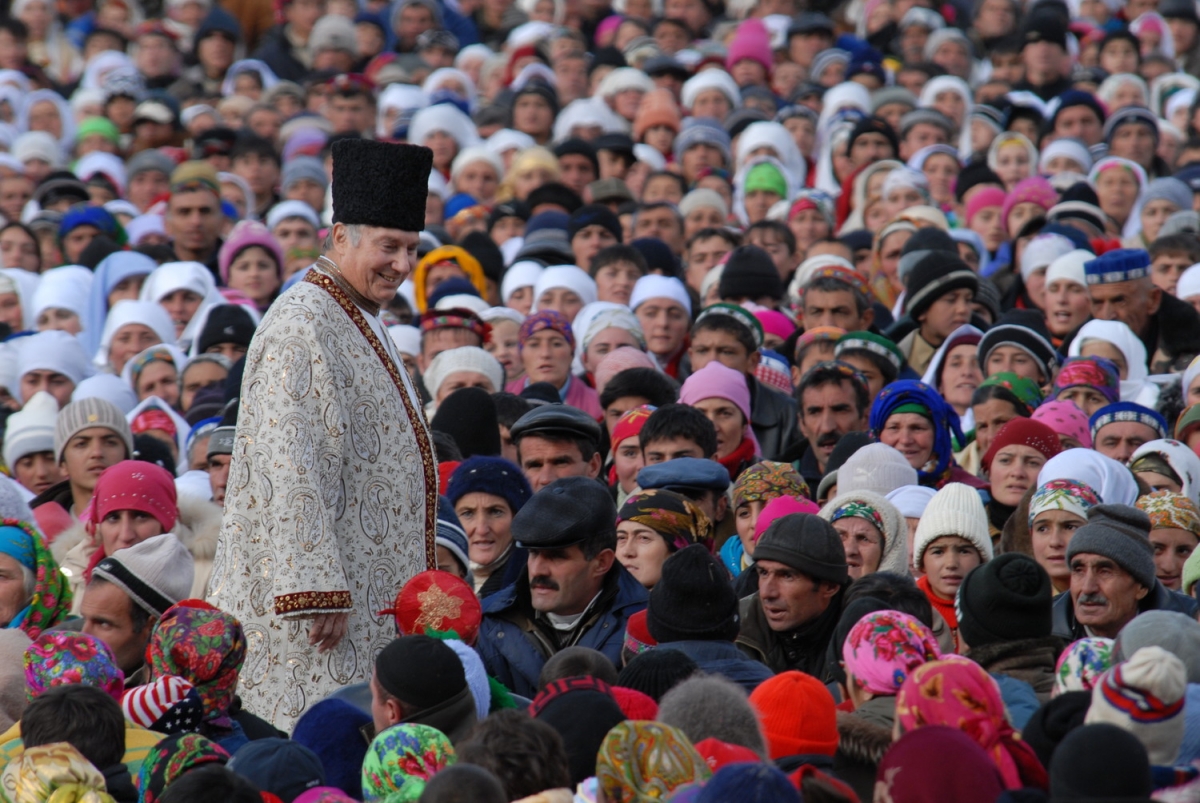
The Ismaili faith is esoteric and is of an intellectual tradition.
To the world he is a King without Kingdom, but to his steadfast followers, he is the Lord of all Worlds.
He is responsible for their spiritual upliftment. He is the living Interpreter of the Qur’an and engages with modern issues that were non-existent at the time of the Prophet.
Islam’s teaching is that there be no dichotomy between one’s worldly and spiritual lives. The worldly life of an Ismaili is very much intertwined with spiritual obligations, daily prayers and rituals. The conduct of their daily actions is framed by the ethics of Islam.
The Ismaili community is very resilient and has a rich history. The community has evolved and has adapted according to the time; and yet steadfast to the accepted and universal rich values of the time of the Prophet 1400 years ago.
At an early age, their faith teaches them that the worldly life is transient and everyone has to account for the life hereafter.
The pursuit of material well-being should never be the exclusive objective of life and it is imperative not to get hypnotized by mundane worldly activities and excessive wealth. Any surplus must be used for the benefit of those who are not as fortunate.
Similarly knowledge is to be shared. There is no purpose in accumulating knowledge, without using it for the benefit and assistance of others.
Success is helping others. These are values of Islam, which the Imam has been reminding their community, time and over again.
The community is very generous and gives of themselves abundantly in their resources of both material and of their time and intellectual commitment, ‘Time and Knowledge’.
To the Ismailis, their Imam is their moral and spiritual compass. They have an unmatched allegiance to him. They are obedient and heed his advice earnestly.
When the Imam visits them in any country, they welcome him with all their love and enthusiasm. They celebrate and look forward for his visits. Their happiness is indescribable.
In Badakshan as in Northern Pakistan, the Imam’s welcome messages are carved high up on the majestic mountains. His followers walk on feet for days and cross mountains to have a glance of him (Didar) when he visits their region.
Even more happier is their Imam to see his murids and he has said that “No mountains, no river, no desert can separate the Imam frrm his murids.”
Ismailis have high conviction of their faith. They internalize their faith in their daily living. Most submit themselves and pray regularly, live simply, are shy and the Imam asks them to stay away from bad social habits.
Facet #14 – The vibrant Ismaili community
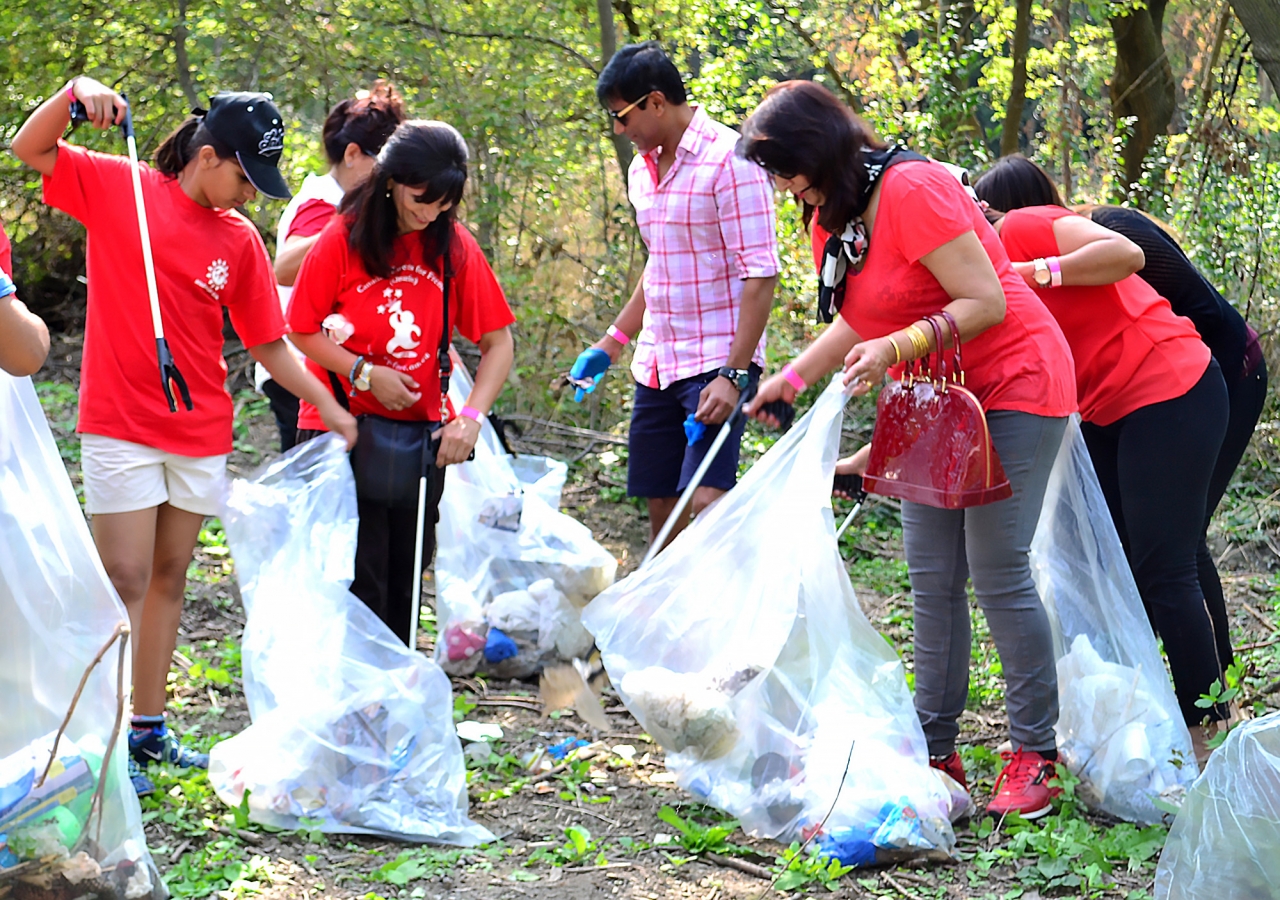
One has to be blessed and grateful to belong to the well-respected Ismaili community under the leadership of the Imam.
The community engages pre-schoolers at an early age, helps in raising the children and youth collectively, and aspires them to reach their full potential.
On the other end of the spectrum, the seniors and elderly are engaged, entertained and given health education and support. The sick are even visited in hospitals, never left to feel lonely.
The community offers much, as well, to the in-betweens in every aspect of their life including health, education, economic and social affairs.
The Ismaili community is both inward and outward looking. The community integrates quickly and always faithful to the county of its domicile. The Ismaili community reciprocates and respects the wider community by extending itself through outreach and bridge building.
Some examples of Ismaili community’s outreach are the one million hours of voluntary work for the Canada 150 initiative, feeding the City of Calgary every year for breakfast during the Calgary Stampede, help in Quebec during the Ice storm, help during Hurricane Harvey in Houston, helping at the food banks during festive seasons, help at Olympic games and many International sporting events, hosting interfaith dialogues etc.
The Ismaili community is very active, vibrant, and energetic. The community is very organised, coherent, disciplined, well structured, well-informed, resourceful, adaptable and progressive. It is united, peaceful, respectful, successful and yet modest.
Outsiders consider Ismaili Muslims as hard working and responsible. They regard the Ismaili community as exemplary, close-knit and discreet.
The members of the community always look after the vulnerable, the weak, and the disadvantaged, never leaving anyone behind. The Quality of Life Project, an objective of Diamond Jubilee, specifically addresses that.
The community has tremendous global network and connectivity. The community has a wide reach of assistance and support in almost all activities of life.
The cornerstone of the community has been education, thanks to the recurring emphasis and the persuasive involvement of the present Imam and his great and notable predecessor Sultan Mohamed Shah Aga Khan.
Volunteerism is also at the core of the community. It is a time honoured tradition of service to others. The attitude toward volunteerism is sincere and professional. Service to the community is accorded with enthusiasm, diligence, and serious commitment, without any sought of recognition. To the outsiders, the number of hours, the members of the community put in, are incomprehensible and simply unimaginable.
The community, with modest beginnings, has successfully settled in Canada and elsewhere. Within two generations, many community members are already successful CEOs, doctors, lawyers, engineers, architects, politicians, economists, teachers, nurses, IT professionals, police officers, even artists and journalists. Many are also scholars, professors with PhDs and MBAs.
There is incredible talent in the community. They take pride in their achievement, give back to the community and always stand to help and mentor others to succeed in their own right.
Professional Global Alliances are being initiated in the Ismaili community to leverage the community’s diverse social, intellectual and economic strengths.
The community provides a strong and resilient safety net for everyone. Segments of their community like the youth, women, the elderly, newly arrived immigrants, the vulnerable and even those medically challenged are engaged by the community, with a special focus.
The multi-ethnic community is considered a belonging community and is very inclusive. The community is becoming increasingly open and accommodating to spouses of other faiths.
Because of the Imam’s invaluable and exhaustive work, the integrity and peaceful nature of the Ismaili community and their contributions, the Shia Ismaili community is increasingly getting recognized.
Facet #15 – The Ismaili Community’s Emphasis on Youth
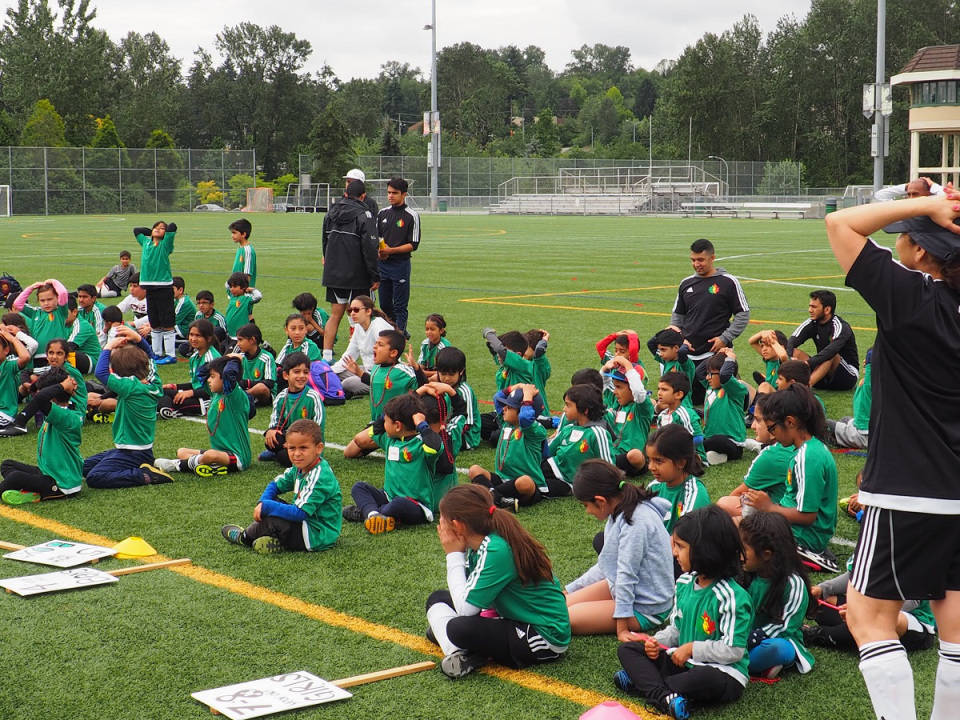
Pre-school education, Bait-ul-Ilm and the STEP program are formative and developmental blocks for young children and the youth.
They learn about the faith holistically and are encouraged to question and reason.
They learn about the concept of God, the ethics of Islam, the tenets of the Ismaili faith and of other great faiths, as well as about Allah’s creation, social issues, moral reasoning, environmental responsibility, cultural Pluralism, work of the AKDN, history and geography, volunteerism, effects of ill-social habits etc.
The youth are grounded in anchors of humanity at an early age and taught to respect everybody, regardless of culture and faith.
To these youth, the valuable knowledge gained with high calibre and professional curriculum by experienced teachers, some even professionally trained is astounding. They are taught very creatively through group activities, teamwork, assignments, field trips, crafts, summer camps, exhibitions, presentations and debates.
The accumulated knowledge adds up to their moral development and gives them additional sense of security. It also teaches them humility in success and perseverance in adversity. It also makes them aware about the larger society and teaches them how they can contribute to humanity.
The youth are exposed and interacted with other youths around the world through International community sport events, like in Golden Jubilee Games in Nairobi, Kenya and at Unity Games at Dubai, U.A.E. The youths improve their interaction and communication skills and learn planning of major International events.
The Ismaili Heritage and Discovery programs also give them exposure of culture, languages of brothers and sisters through travels to other parts of the world where other Ismailis reside.
Youth at younger age are drawn to serving others, take responsibilities and in turn develop many social, leadership and organizational skills, besides building their self-confidence. They are also entrusted with responsibility of officiating some of the religious ceremonies.
The community gives them a sense of belonging and provides them meaningful responsibilities. It gives them humility and satisfaction, keeps them purposely occupied and abates the risk of them going astray.
The pay-off of engaging the youth in the community is particularly important in the adolescence years, where parents are so busy and pre-occupied with their careers and occupations, while the youth have lot of time at hand.
Conclusion
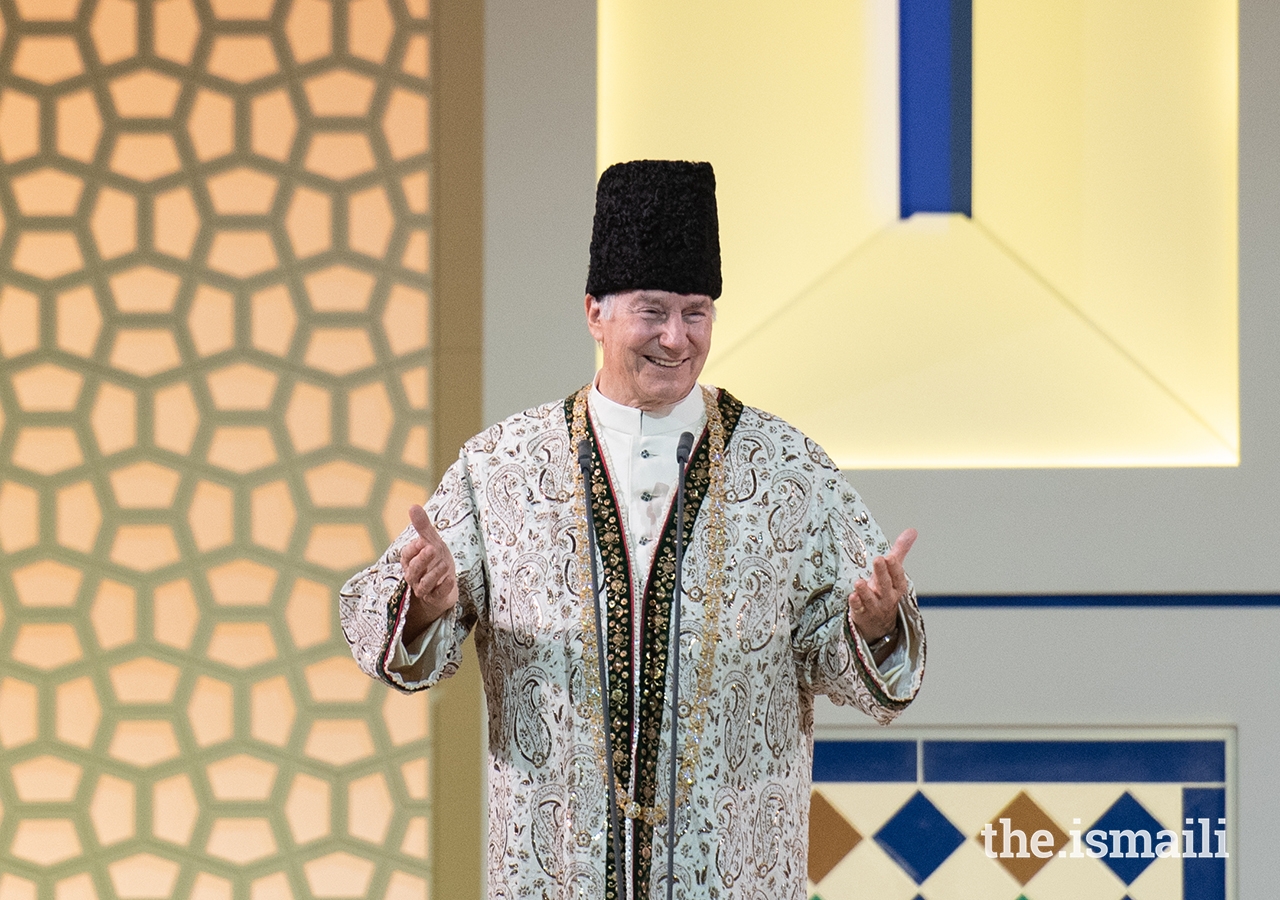
Emotions, feelings and words fail to describe Imam’s epitome of inspiration in the service of humanity.
His numerous and illustrious achievements, during six decades of his Imamat, are truly impressive and transformational.
The Imam is sincere, kind and a genuine enabler. It is his noble calling. His thinking is informed from the great tenets of the faith of Islam and the responsibility towards humanity.
The Imam is an exceptional human being. He is so highly regarded and well-liked by many. He is a beacon of hope for many. The impact of his exhaustive work through AKDN entities will be felt for generations to come.
Jubilees are markers and events of celebration. They are epochal for the Imam and the community, as is this Diamond Jubilee. They are like trampoline and always propel the Jamats forward, along with the wider community, with which they reside.
On this historical and momentous year of Diamond Jubilee, we wish to say mubaraki to our Imam, express our humble ‘shukhrana’ and also thank him for his Diamond Jubilee visits to Uganda, Tanzania, Canada, Pakistan, United Arab Emirates, India the USA, Kenya, France and the UK. We now await the conclusion of his Diamond Jubilee with a visit to Portugal.
Ismailis all over the world are blessed by Imam’s rahemat and gratified of his benevolence, magnanimity and nobility.
I end this humble narrative of the Imam with a prayer for peace for all our Ismaili brothers and sisters, in any corner of the world, who face any kind of difficulty, and especially for those who live in conflict burdened and war-torn countries.
Date posted: July 4, 2018.
Last updated: July 5, 2021 (reformatted with improved layout for readability)
__________________

About the author: Shiraz A Nasser, B.Sc. Agriculture (Hons) (1973 University of East Africa), is an accredited member of Ontario Association of Certified Engineering Technicians and Technologists (OACETT) since 1982.
Born and raised in Dodoma, Tanzania, Shiraz started his career lecturing on Soil Science at his alma mater, Egerton Agricultural College, Kenya. Upon immigrating to Canada, he retooled himself by studying Civil Engineering at Ryerson University.
Shiraz currently works for the City of Mississauga, Ontario, Canada as a GIS Specialist in the Geomatics Section. Prior to that, he worked for 28 years for a private consulting engineering firm that designed and constructed infrastructure projects such as highways, railways, airport runways, and municipal infrastructure, as well as automotive plants for companies like Ford and General Motors.
Shiraz is a recipient of the Ontario Volunteer Service Award for his 30+ years of community service. His varied voluntary roles in the Ismaili community include fundraising for Aga Khan University (Karachi) and Focus Humanitarian Assistance, being Assistant Convenor for Bait-ul-Ilm for Ontario, providing site design consultancy for Greater Toronto Jamatkhanas, being mentor for numerous Ismaili youth and doing other Jamati work.
Shiraz has long had a passion for learning about the world, in particular about history, politics and Islam. This passion is shared by his two children, who both work in the media: His daughter Farah is the well-known Toronto-based anchor for Global News, and son Latif got a PhD from Harvard University, and is the Director of Research for the New York-based public radio show Radiolab.
_________________
Barakah welcomes your feedback. Please complete the LEAVE A REPLY form below or send your comment to simerg@aol.com. Your letter may be edited for length and brevity, and is subject to moderation.
For links to all the posts please click on Table of Contents. Also join/like Barakah at http://www.facebook.com/1000fold and follow us at http://twitter.com/simerg.
This website, Barakah, is a special project by http://www.Simerg.com and is dedicated to the textual and visual celebration of His Highness the Aga Khan as he celebrates his Diamond Jubilee or 60 years of Imamat.
Thank you, Shiraz, for sharing your knowlwdge. I am fortunate to have known you. Your humble service to the community silently behind the scene is inspirng. May you be blessed with long and healthy life..ameen.
LikeLike
Wow! Very detailed article, beautifully written. Thanks.
LikeLike
This piece has been well done. Thank you.
LikeLike
Shiraz you have done a wonderful job of covering every facet of the Imam’ s work. Very comprehensive and easy to read. Believe me, right now I am in a parking lot. I started to read and could not stop until I completed. I commend you for taking the time to do a thorough research. What I liked the most is that you were objective and not over zealous. I have bookmarked your article. With your permission, I am going to forward this article to my distribution list.
Once again thank you for forwarding the article to me. Hopefully you Amin and I will connect one of these days and reminisce about the good old days.
I will now step out of the car and finish my chores!
LikeLike
This is indeed an excellent job well done by Shiraz and has captured the entire spectrum of Mawla’s work in few pages. Very proud of Shiraz and his work in sharing this.
LikeLike
Credit for article to my son Latif Nasser for refining and crystalizing my thoughts and putting on paper and of course particularly to Malik Merchant who has embellished the artricle millionfold from what I initially submitted. I admire all his great work in tradition of his parents of sharing knowledge.
Thanks for all the beautiful comments and taking time to read it.
Khushiali Mubaraki to entire Ismaili Jamat on this auspicious and epochal event.
LikeLike
“No mountains, no river, no desert can separate the Imam from his murids.” This bonding cannot be described, cannot be explained…It gets only stronger from generation to generation.
LikeLike
It took me a long time to read this very interesting and comprehensive article by Shiraz Nasser. I read this on my mobile phone, sitting in bed after midnight and did not wish to stop until I read the whole article. Superbly narrated facts about Mawla’s “work” during the 60 years of his Imamate and how the Ismaili community worldwide has progressed under Mawla’s leadership. Shiraz Nasser has done a brilliant job here and anyone reading this will appreciate it.
LikeLike
This very elaborate and educational article by Shiraz A. Nasser will be extremely useful to all and especially young members of the community to gain thorough understanding of “THE MANY FACETS OF HIS HIGHNESS THE AGA KHAN’S LEADERSHIP” which is also the title of the article. The piece from Shiraz is very timely in that it comes at the culmination of the Diamond Jubilee (60 Years of Imamat) of His Highness the Aga Khan. Shiraz deserves gratitude from the readers and I sincerely commend his efforts.
I have personally known Shiraz and his family for over 50 years from Tanzania. His own achievements are praise-worthy and also those of his daughter Farah and son Latif both of whom are doing quite well in their own right.
Hope and pray that the readers of Simerg and Barakah will take the advantage of this posting.
LikeLike